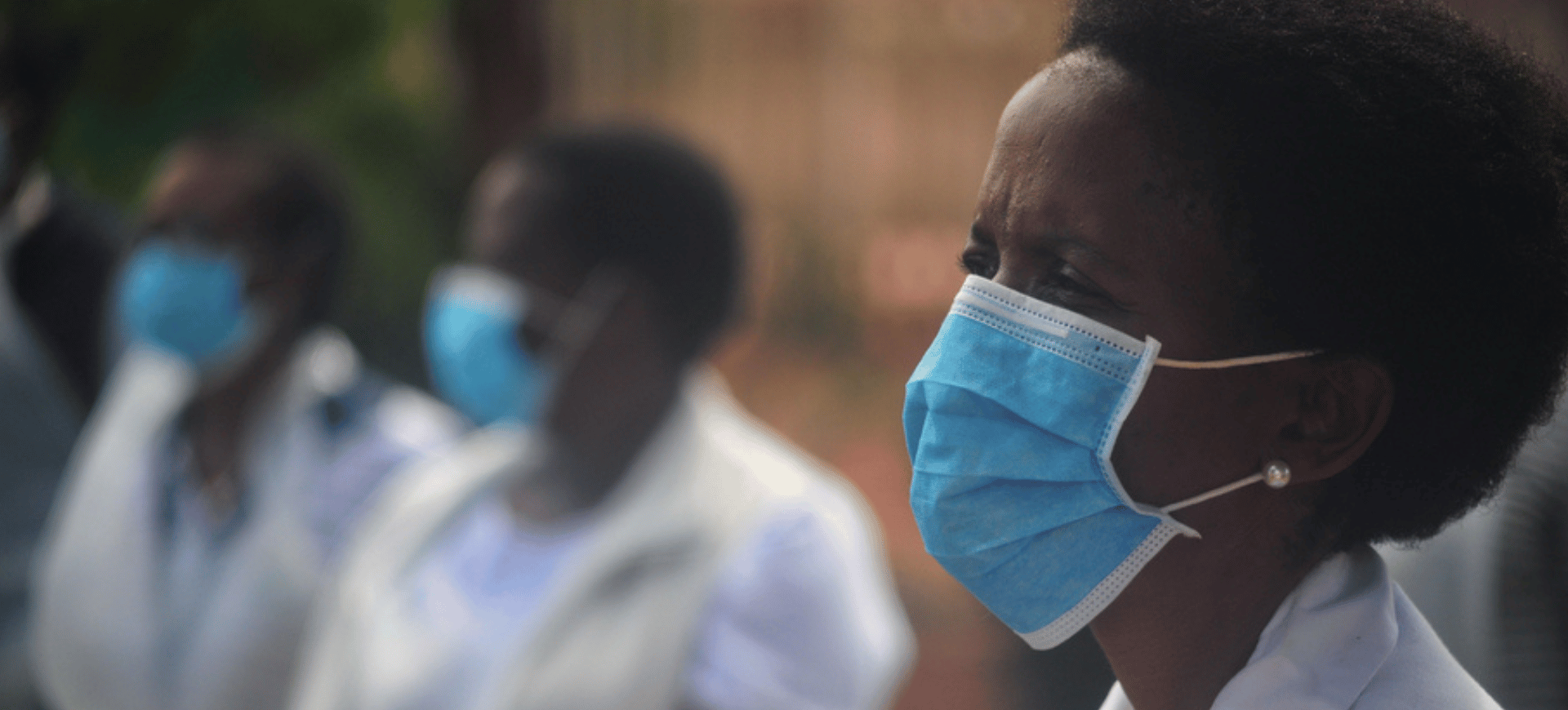Building health care resilience across Africa
In the face of a high disease burden, extreme weather and humanitarian crises, the World Health Organization is working closely with member states across the continent so they have the tools and knowledge to protect their populations
The World Health Organization African Region bears a high burden of public health emergencies arising from epidemic-prone diseases, extreme weather events, humanitarian crises and other acute causes.
Health systems in the region remain ill equipped to respond effectively to health threats, which usually result in significant disruptions to the delivery of essential health services. Immunisation disruption due to the Covid-19 pandemic resulted in over 300,000 more measles cases in 2023 compared to 2019.
To respond to health threats adequately, countries of the WHO African region adopted the Framework for Sustaining Resilient Health Systems to Achieve Universal Health Coverage and Promote Health Security, 2023–2030. It entails stronger investment in primary health care, essential public health functions and multisectoral governance structures.
The WHO has developed a suite of tools and guidelines that countries are using to bolster the resilience of their health systems. These resources include guidance for building health systems resilience to tackle public health challenges, a set of metrics for monitoring health systems resilience, a toolkit for health systems resilience offering a collection of technical materials and assessment tools for evaluating health systems resilience.
Reorienting health systems to a primary healthcare approach
The WHO is supporting member states to align their health sector plans towards an operational framework for primary health care with integrated service delivery models. The WHO has supported 16 countries to
develop and implement context-specific essential healthcare
packages over the last five years.
It supports countries to invest and achieve the committed, multidisciplinary health workforce targets required to attain universal health coverage. Through WHO-supported health labour market analysis,
22 countries have implemented evidence-based policy improvements, increased investments and have the basis for negotiating co-investments with countries benefiting from health worker migration.
The WHO also supports countries in creating an enabling environment for community and stakeholder engagement and the empowerment of individuals and families as co-owners and co-producers of health.
Investing in essential public health functions at all levels
Joint external evaluations conducted by the WHO in countries assess their capacities to prevent, detect and rapidly respond to public health risks. Between 2016 and 2023, evaluations were conducted in 46 out of 47 countries in the African region.
During health emergencies, the WHO assists countries in evaluating their preparedness to sustain essential services and tackle emerging challenges. Several such assessments were carried out during the Covid-19 pandemic, including in Congo, Ghana, Mali, Namibia, Senegal, the Seychelles and Zambia. Subsequently, the WHO has assisted countries in evaluating the operational capacity of their health systems at the district level, and leveraging this data to develop resilient health systems capable of withstanding shocks. By July 2024, 18 countries had completed evaluations.
The WHO supports countries to mobilise domestic and international resources to invest in a critical set of essential public health functions at all levels of the health system. The capacity of countries to adopt evidence-based health financing strategies, improve public financial management practices, track health expenditures, and strengthen transparency and resource efficiency is being improved. Furthermore, the WHO’s assistance in costing national health strategic plans helps assess fiscal space and mobilise resources.
The WHO has worked closely with the Africa Centres for Disease Control and Prevention and other partners to support countries to mobilise international funding for essential public health functions, including from the Pandemic Fund.
To ensure adequate access to vaccines, therapeutics and diagnostics, the WHO supports national capacities for local production, pooled procurement and regulatory capacity.
Multisectoral governance and coordination mechanisms
The WHO supports member states in identifying and implementing multisectoral platforms as opportunities for policy dialogue in support of building resilient health systems. The Central African Republic, Sierra Leone, Tanzania and Congo were supported in conducting universal health preparedness reviews integrated with simulation exercises. These comprehensive reviews of national health and preparedness capacities will enable the development of national roadmaps for accelerated progress towards health emergency preparedness, universal health coverage and health promotion.
Remaining tasks and challenges
While there have been achievements, continued enhancements in various aspects of health systems are essential. Investment needs to increase and be less fragmented. A significant number of African countries continue to face a critical shortage of healthcare workers. Access to good quality medicines remains a challenge, with substandard or falsified products constituting about 10% of the medicines and medical products in the region. Out-of-pocket spending remains high, with 34% of Africa’s population spending more than 20% of their income on healthcare access.
The outstanding tasks and challenges in enhancing health systems resilience in the African region include bolstering emergency preparedness, addressing healthcare workforce shortages, improving access to essential health services, strengthening health information systems, enhancing financial sustainability and enabling community engagement. Addressing these challenges necessitates significant financial investments in health systems and close collaboration with national authorities and key partners.












